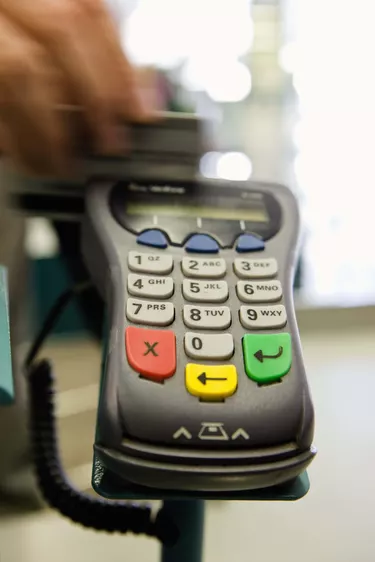
Nonprofit organizations can and do use regular bank accounts to conduct their operations, receive donations and pay vendors. While charities can use regular business bank accounts, many banks offer special nonprofit accounts with discounted fees and other perks to help charitable organizations carry out their missions. Nonprofits need to consider several factors when determining the best bank account for their organization.
Minimum Balances
Video of the Day
Many nonprofits operate on a cyclical basis and have wide variations in their account balances. Some organizations are flush during the holidays but not in the summer, while others receive a high percentage of donations at the end of the month but struggle during the middle. Banks have different policies on minimum balances that must be maintained for the account holder to avoid additional fees on checking and savings accounts. Nonprofits should investigate minimum balance requirements to ensure they meet the needs of the organization. Some banks may waive minimum balance requirements on nonprofit accounts.
Video of the Day
Fees
In addition to minimum balance fees, banks can charge fees for monthly maintenance, coin counting, check writing, automatic teller machine use and numerous other services. These charges can add up to a significant monthly sum for a nonprofit organization. Charities should consider fee policies when choosing a financial institution. Ask whether the bank would be willing to waive some fees on a nonprofit account.
Credit Card Processing

If your organization will be processing credit cards online or in person, ask banks for their fee schedules and average processing time. Your nonprofit will want to shop around for rates and make sure the bank does not take an inordinate amount of time to move money into your account.
Interest Rate
Nonprofit organizations that carry significant sums in money market or savings accounts can shop around for the best interest rates offered by local, national and online banks. Rates offered on checking, savings and money market accounts can vary widely among financial institutions.
Convenience
Branch and ATM locations, office hours and ease of online banking are all important considerations when determining a banking partner for a nonprofit organization. Nonprofit employees will want to make sure that depositing gifts and making payments to vendors is easy, convenient and secure.
Philanthropic Support
Many banks are major charitable givers. Nonprofits are wise to consider potential financial support from banks when determining which institution to use. Smaller regional banks often offer the chance for stronger personal relationships and thus more sponsorship gifts to the organization, but these gifts can sometimes be outweighed by higher fees or more restrictive rules.